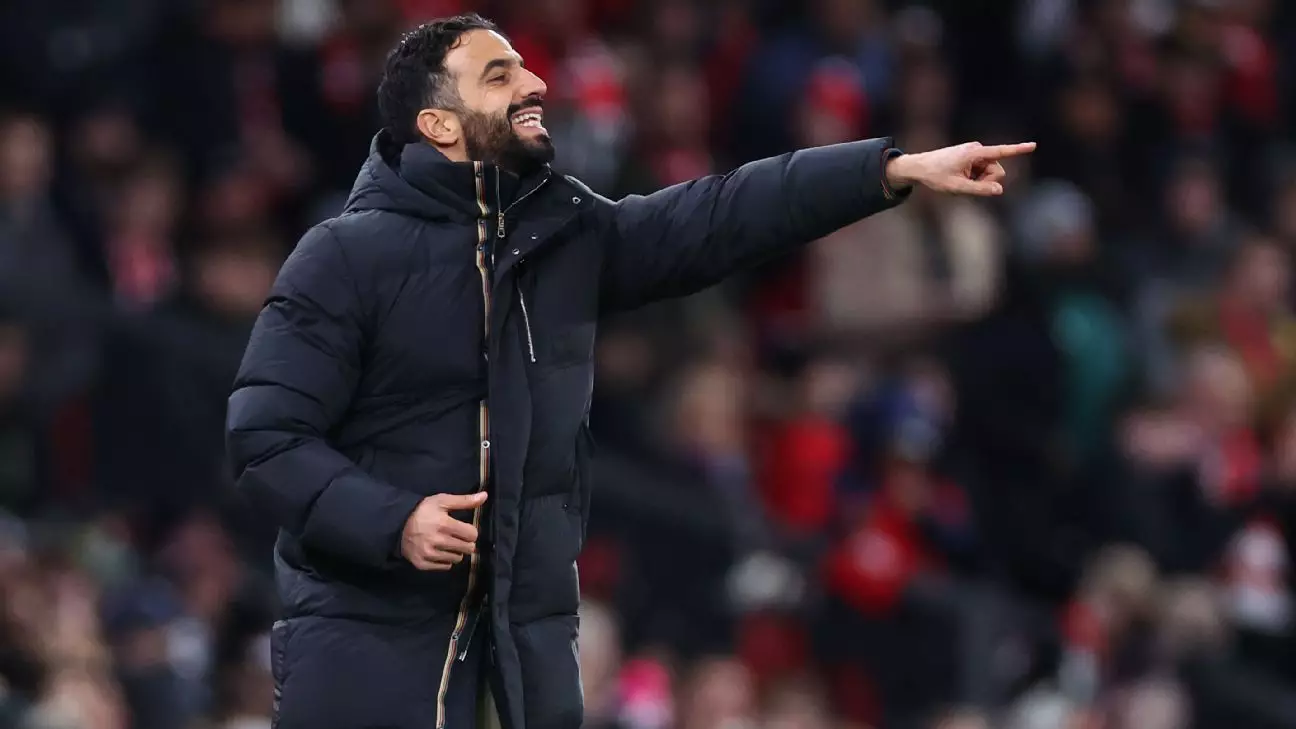Ruben Amorim has recently stepped into the challenging role of managing Manchester United, a club steeped in tradition and expectation. In his early days, his experience has been characterized by a palpable sense of anxiety brought on by the demands of high-level tactics and the need for a cohesive team dynamic. Despite leading his squad to a commendable 3-2 victory against Bodo/Glimt in the Europa League, Amorim has openly expressed his nervousness about the unpredictability of the team’s performance as they adapt to his strategic requirements. His frank acknowledgment of these apprehensions highlights the immense pressure that a managerial role entails, particularly in a high-stakes environment like Old Trafford.
Amorim’s initiation with the team was tumultuous, having drawn his first match 1-1 against Ipswich Town prior to the European clash. In search of a more effective lineup, he made six significant changes to his starting lineup, bringing in players like Lisandro Martínez and Mason Mount to enhance game quality. This decision reflects a strategy rooted in experimentation—an essential process as he tries to find the right combination of players who can execute his vision on the pitch. The transformative moment in the Europa League indicated some progress; however, Amorim is acutely aware that continuous adjustments are crucial as different opponents bring varied challenges.
Amorim’s insights extend beyond mere tactical concerns; they echo a deeper narrative of adaptation in high-pressure scenarios. “I get anxious because I don’t know what will happen,” he confessed, illustrating the emotional toll of molding a new team while simultaneously competing for results. The blend of excitement and trepidation encapsulates the essence of managing a competitive football team, where each match not only serves as a test of skill but also a measure of the managerial approach adopted by the coach.
Another vital aspect surrounding Amorim’s early days in charge relates to player fitness and endurance levels. In the match against Bodo/Glimt, he noted the strain on his players as they attempted to maintain a pressing style throughout the game. The physical demands of such a strategy can uncover weaknesses in conditioning, particularly when relying on players who are still recovering from injury or are experiencing fatigue. The coach’s remarks about Rasmus Højlund’s exhaustion and the need for multiple substitutions underline the importance of not only selecting the right players but also ensuring they are adequately prepared to meet the rigors of top-flight football.
As Amorim prepares for the upcoming Premier League showdown against Everton, he understands that he will be compelled to make further changes to his lineup. The combination of excitement and anxiety continues to define his tenure thus far. With each match, Amorim is not just steering Manchester United toward results; he is embedding himself deeper into the club’s ethos, navigating through the complexities of team building amid fluctuating performances. The journey ahead will be arduous, but Amorim’s resolve to improve both his tactical approach and player fitness may lay the groundwork for a flourishing chapter in his managerial career.

